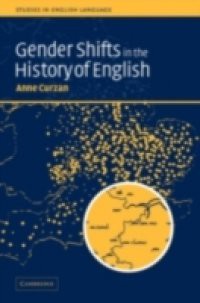How and why did grammatical gender, found in Old English and in other Germanic languages, gradually disappear from English and get replaced by a system where the gender of nouns and the use of personal pronouns depend on the natural gender of the referent? How is this shift related to 'irregular agreement' (such as she for ships) and 'sexist' language use (such as generic he) in Modern English, and how is the language continuing to evolve in these respects? Anne Curzan's accessibly written and carefully researched study is based on extensive corpus data, and will make a major contribution by providing a historical perspective on these often controversial questions. It will be of interest to researchers and students in history of English, historical linguistics, corpus linguistics, language and gender, and medieval studies.

